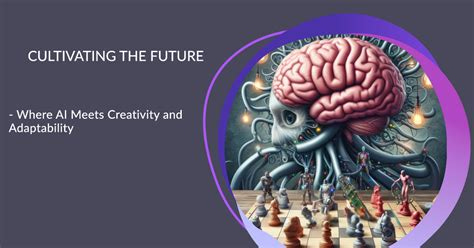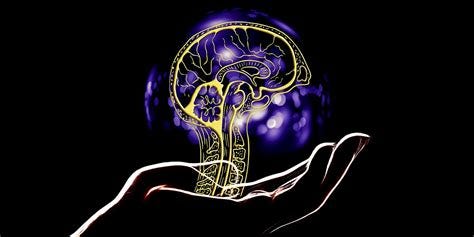Organoid Intelligence
The Future of Biocomputing and Ethics

Picture a future where miniature, lab-grown brains—organoids—outperform silicon-based supercomputers, capable of processing vast amounts of information at speeds we can barely comprehend today. This is no longer just the realm of science fiction, but the cutting edge of an emerging field called organoid intelligence (OI). In recent years, OI has captured the attention of both neuroscientists and technologists as they explore how human brain-like structures grown from stem cells could offer insights into cognition, neurological diseases, and perhaps even power new forms of artificial intelligence (AI).
But what exactly is organoid intelligence? How did it start, and where is it headed? And perhaps more provocatively, what are the ethical implications of growing miniature human brains in a dish?
Organoids: A Step Beyond Traditional Science
Before diving into organoid intelligence, it’s important to understand organoids themselves. Organoids are lab-grown clusters of cells that mimic the structure and function of human organs, including the brain, liver, kidneys, and intestines. They are derived from stem cells, which can self-organize into complex 3D tissues under the right conditions.
While organoids were initially developed to model diseases and test drug therapies, it wasn’t long before scientists realized their potential to study the human brain in unprecedented ways. The breakthrough in brain organoids came in the early 2010s when scientists successfully grew miniature, simplified versions of the human brain. These brain organoids resemble the early stages of brain development, complete with neural activity and the ability to form synaptic connections (starts at around 5 minutes in the video).
The Birth of Organoid Intelligence: A New Frontier
The concept of organoid intelligence emerged from the intersection of neuroscience, biotechnology, and artificial intelligence. In recent years, scientists have been experimenting with using brain organoids as biological computing systems. The idea is that these lab-grown "mini-brains" could, in theory, process information, store memories, and even solve problems—essentially acting as a living, learning system.
In 2023, a groundbreaking paper by a team of researchers led by Dr. Thomas Hartung at Johns Hopkins University introduced the world to the potential of OI.
Their work demonstrated how brain organoids could be connected to electrodes to interface with computers, allowing researchers to measure their electrical activity. These organoids showed signs of learning and adapting to stimuli, opening the door to their use as biocomputing platforms. The long-term goal of organoid intelligence is to leverage these biological systems to create hybrid systems where silicon-based computers and biological neural networks work together.
This approach could revolutionize artificial intelligence. While traditional AI is based on computational models that mimic how we think the brain works, OI could be an opportunity to harness actual human neurons to create systems capable of learning and problem-solving in ways we can’t yet achieve with silicon chips. What could possibly go wrong with any of this?!?!

Applications of Organoid Intelligence: Biocomputing and Beyond
The potential applications of OI are vast. Here are a few examples that are already beginning to take shape:
Neurological Disease Research: Organoids offer a unique way to study neurological conditions like Alzheimer’s, Parkinson’s, and autism. Since brain organoids can mimic early developmental stages of the human brain, they allow scientists to model these diseases in a more realistic environment. With organoid intelligence, researchers could go a step further by monitoring how these mini-brains process information and how that changes with disease progression.
Personalized Medicine: Imagine being able to grow brain organoids from a patient’s stem cells, then use these mini-brains to predict how that individual would respond to different treatments for conditions like epilepsy or mental health disorders. This could pave the way for personalized brain therapies that are far more effective and tailored to individual needs.
Biological Computing Systems: While today’s supercomputers are incredibly powerful, they are limited by the fundamental architecture of silicon. Organoid intelligence could offer a completely new way of computing that is more energy-efficient and capable of handling complex, non-linear problems—problems that even the most advanced AI systems struggle with.
Brain-Machine Interfaces: By integrating organoid intelligence with brain-machine interfaces, there is potential for new breakthroughs in neuroprosthetics and even direct brain-to-brain communication. This could allow for more intuitive control of prosthetic limbs or communication devices for people with neurological injuries.
The Ethical Maze of Organoid Intelligence
The promise of organoid intelligence, while exciting, brings with it profound ethical concerns. If brain organoids can learn, store memories, and potentially even exhibit rudimentary forms of cognition, at what point do we start to question their status? Could a sufficiently complex brain organoid become self-aware? And if so, what rights would it have?
There are also concerns about the commodification of human tissues. As researchers push the boundaries of what organoids can do, the line between a simple biological model and a conscious entity becomes murky. Some bioethicists argue that we need strict guidelines on how far we should go in creating brain organoids, especially if they reach a level of complexity that begins to resemble human cognition.

Another ethical challenge is related to the dual-use nature of OI. While brain organoids could be used for medical advancements, they could also be weaponized or used in malicious ways. The possibility of using organoid intelligence to develop more powerful AI systems for surveillance, warfare, or manipulation is a very real concern.

The Future of Organoid Intelligence: Promise and Peril
As organoid intelligence continues to evolve, it holds the promise of transforming everything from disease treatment to artificial intelligence and beyond.
It may give rise to new kinds of biocomputing systems that far exceed the capabilities of today’s machines. Yet, this promise comes with significant ethical dilemmas that society will need to confront.
In many ways, organoid intelligence is pushing science into a new era where biology and technology converge. The question is not just whether we can grow and enhance mini-brains, but whether we should. Balancing the enormous potential of this technology with the ethical considerations it raises will be one of the most important challenges of the 21st century.
We are on the cusp of a revolution that could redefine what it means to be intelligent, both in machines and in life itself. How far will we go, and what does that mean for humanity? As we explore the frontiers of organoid intelligence, these are the questions that will need answers.







Generally in medicine/tech/military/agsci, the public is about 30yrs behind, the early adopters/innovation are 15-20yrs behind the bulk of the research, which is 10yrs behind the cutting edge research, which is about 5yrs behind the proof of concepts, or original idea (which is where DoD's usually operate, btw).🤔😉
That's not opinion.
The organoids have been around a while, especially if you look at patent trails. Where do you think transhumanism crew got their plans from? The latest batch of tech bros?🤨
🤦♀️
Could a sufficiently complex brain organoid become self-aware?
Appears to me that about half that population isn't.